This is the third post about my recent trip to Austria, Hungary and Slovakia with Birdwatch Ireland. You can find my previous posts on
day 1 here, and
day 2 here.
The third day's goals were Great Bustards in the morning and then our visit to Hungary. We left our base at the
Post Hotel Illmitz and traveled East towards Hungary. The town of Illmitz is known for it's wine making and is surrounded on all sides by vineyards. But as we traveled East we left the grape vines behind for fields of different crops. Although I had seen Great Bustards in Portugal, I was looking forward to seeing them again. Leander. our Austrian guide, told us that due to really wet and cold weather the previous week, the Bustard nests were lost. So there was a chance that we could see males strutting in attempt at a second brood.
Someone spotted two Great Bustards out in a cleared field, which isn't hard, they are the world's heaviest flying bird,
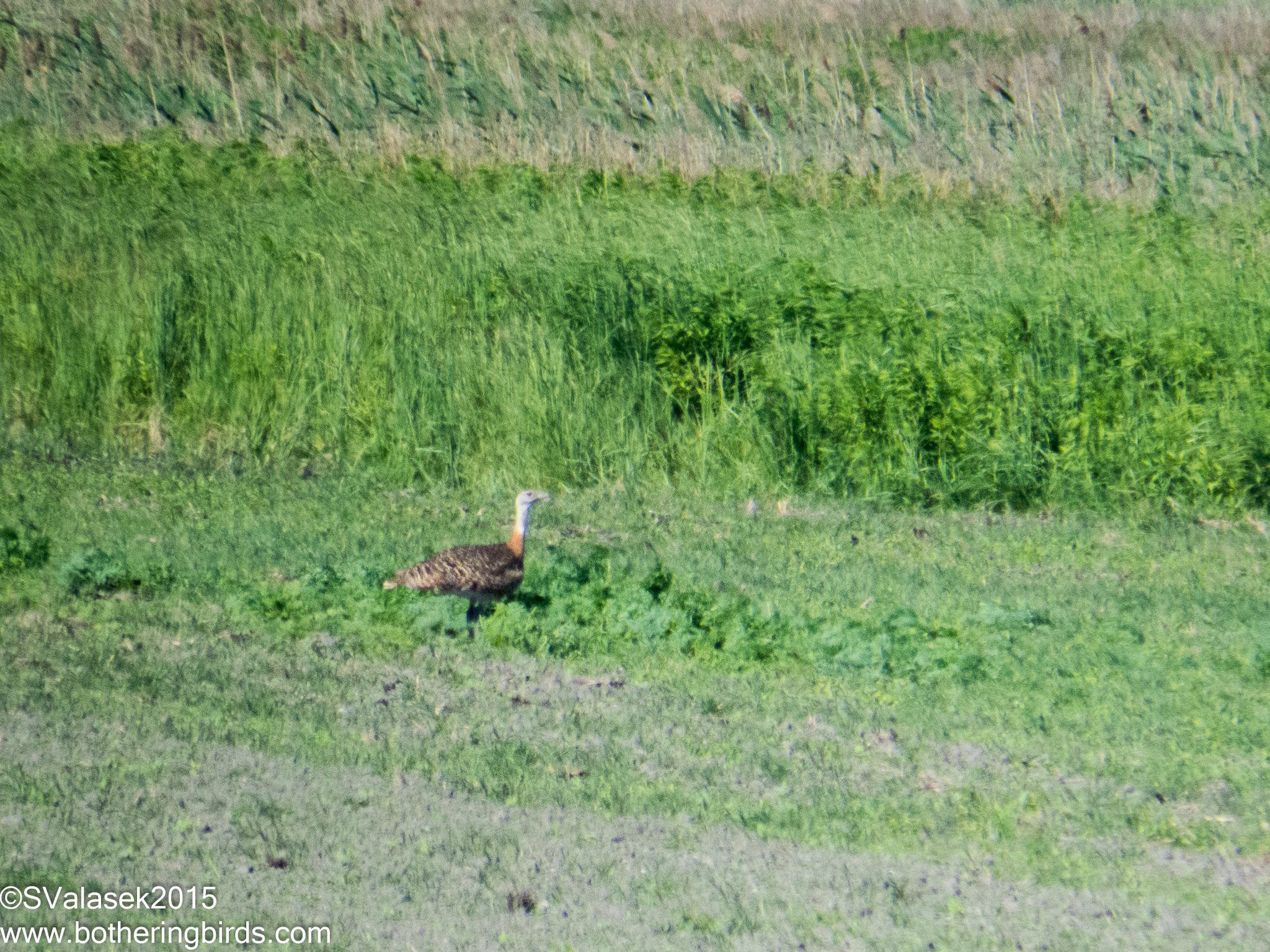 |
| Great Bustard - Burgenland, Austria |
The region had hides and observation towers everywhere. The Nationalpark Nuesiedlersee is a popular birding destination. Here's some of the group and our faithful motor coach watching the Great Bustards.
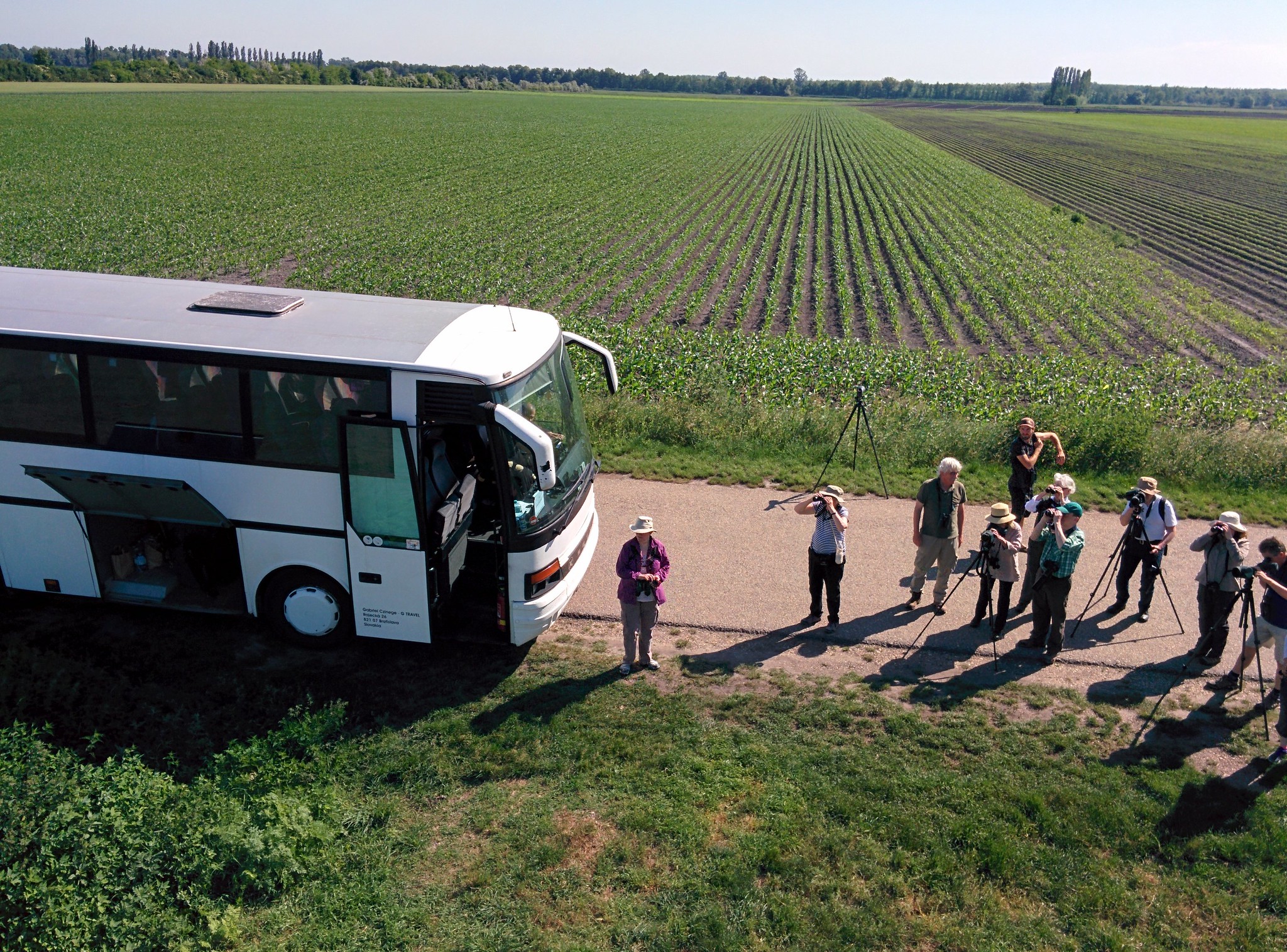 |
| Irish Birders - Burgenland, Austria |
It turned out that the two Bustards were both females, so no displays that morning. But the group got to hear a Corncrake calling from some brush, although we never saw it while we were watching. We also saw a pair of Imperial Eagles soaring off in the far distance. Our guides pointed out the differences in wing-shape and the golden color of their heads. But they were very far off. We did get good looks at Marsh-Harriers though, which were becoming very common.
Our next stop was a few miles further East on the border between Austria and Hungary at the Andau Bridge. The bridge was the scene of a mass exodus of refugees during the soviet crack-down of 1956. When the Iron Curtain was raised all of the border crossings were closed. But a small bridge was forgotten and 70,000 Hungarian refugees used it to escape to the West until it was destroyed by the Soviet military. Today the recently restored bridge is a peaceful spot and the road to Andau is lined with a series of sculptures commemorating the event.
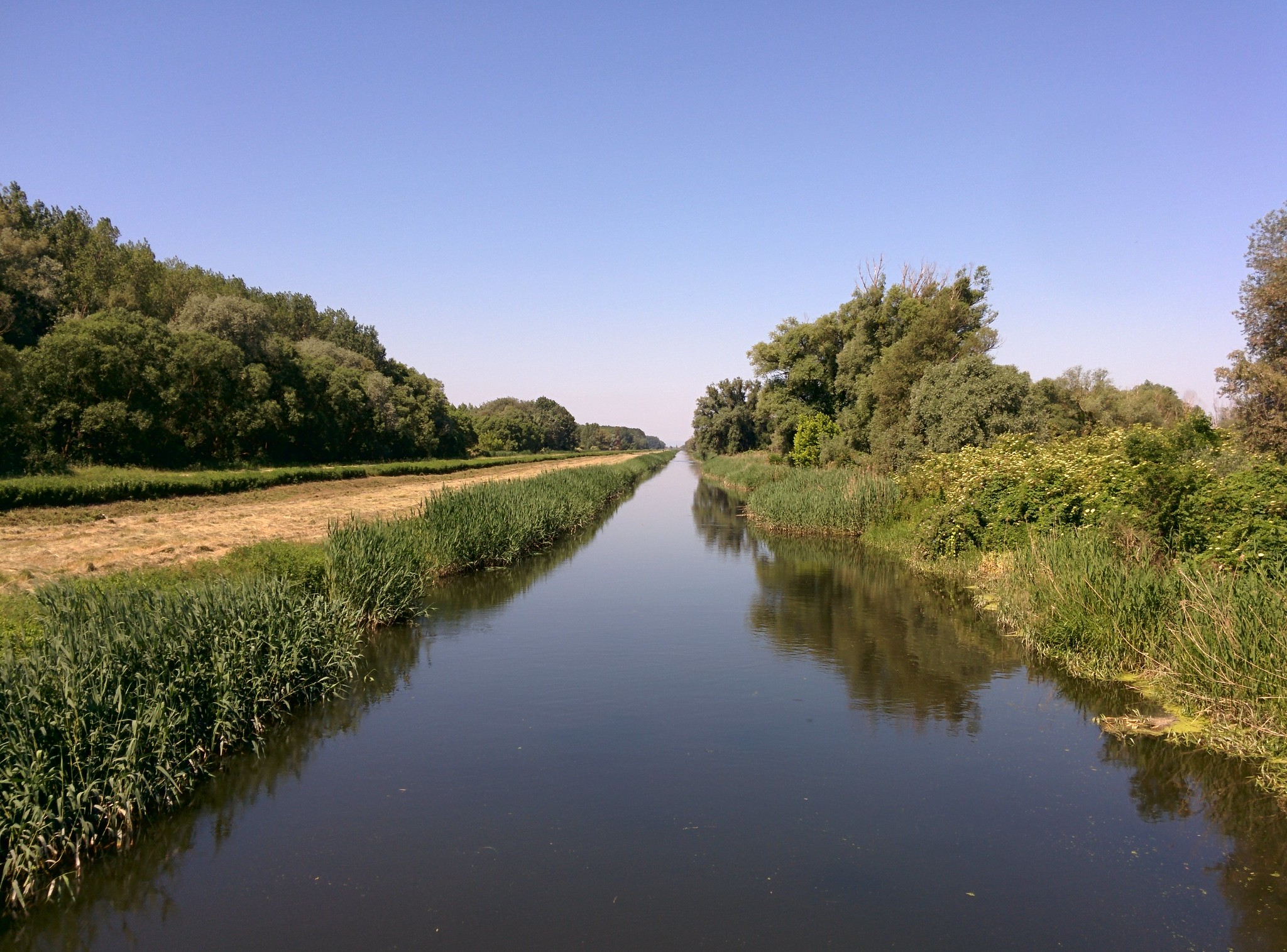 |
| View from Andau Bridge, Austria to the right, Hungary to the left |
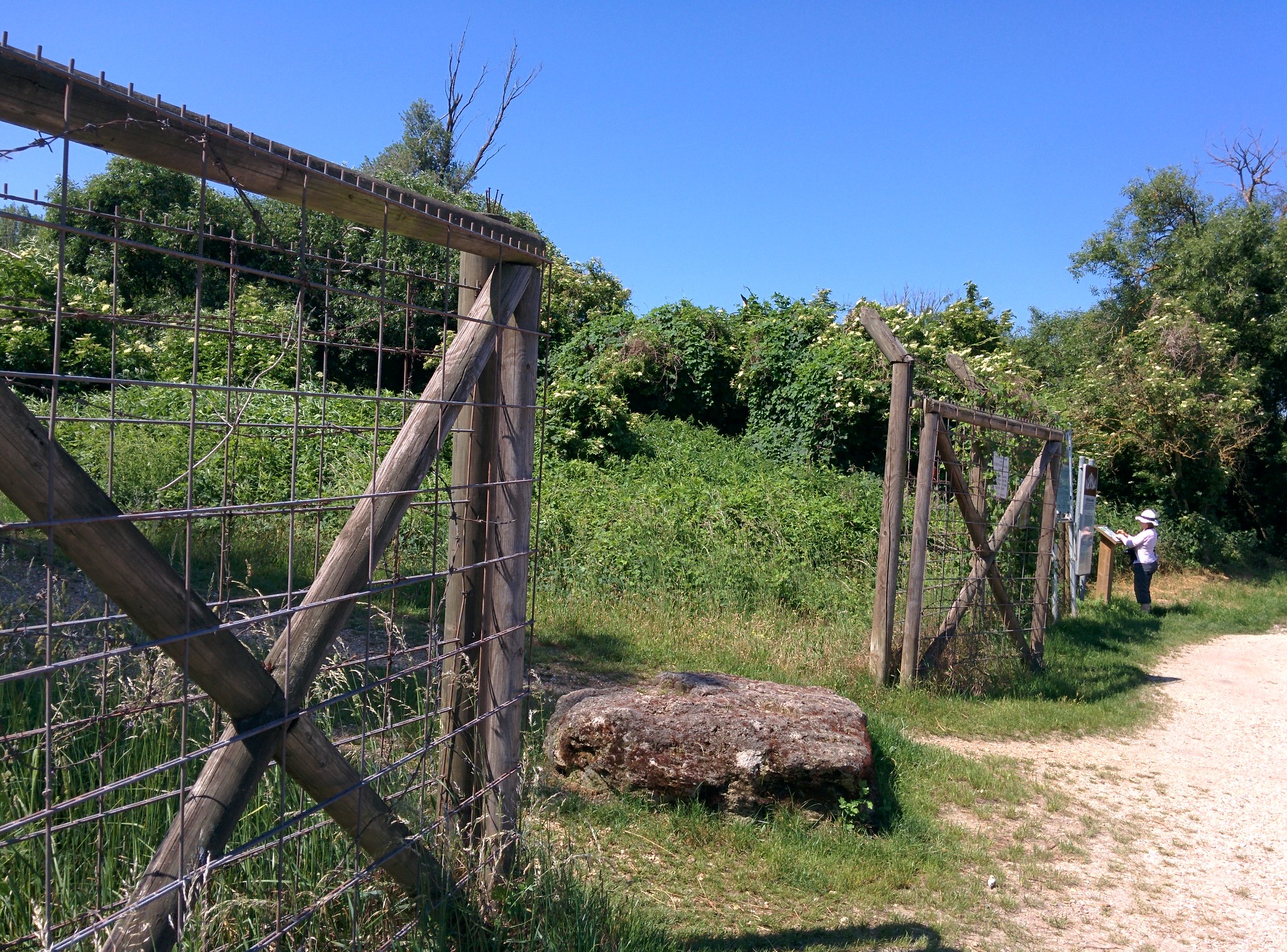 |
| Old border fence - Andau Bridge, Austria |
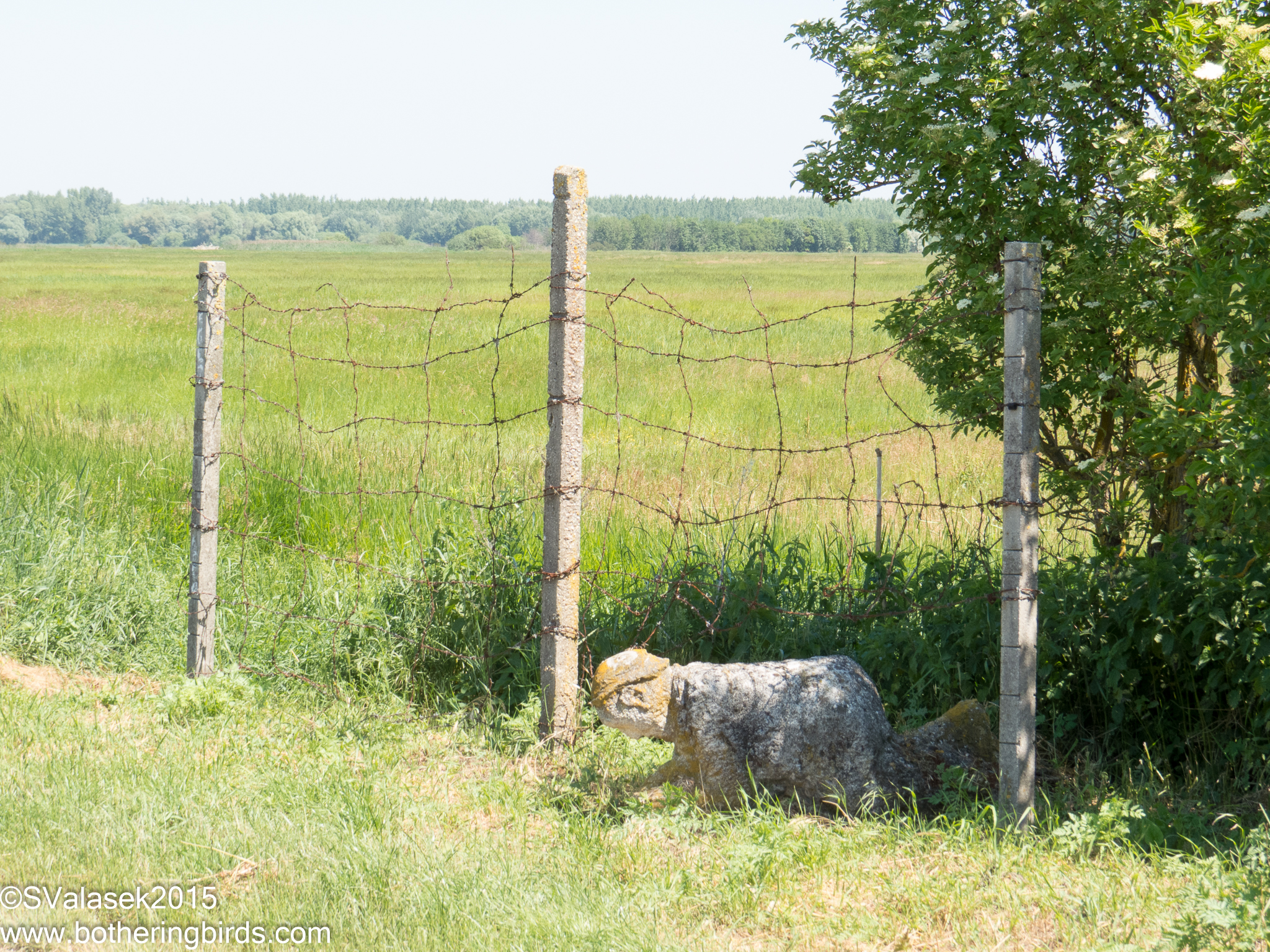 |
| Roadside Sculpture - Andau Bridge, Austria |
There were still plenty of birds to be seen, like this Red-Backed Shrike.
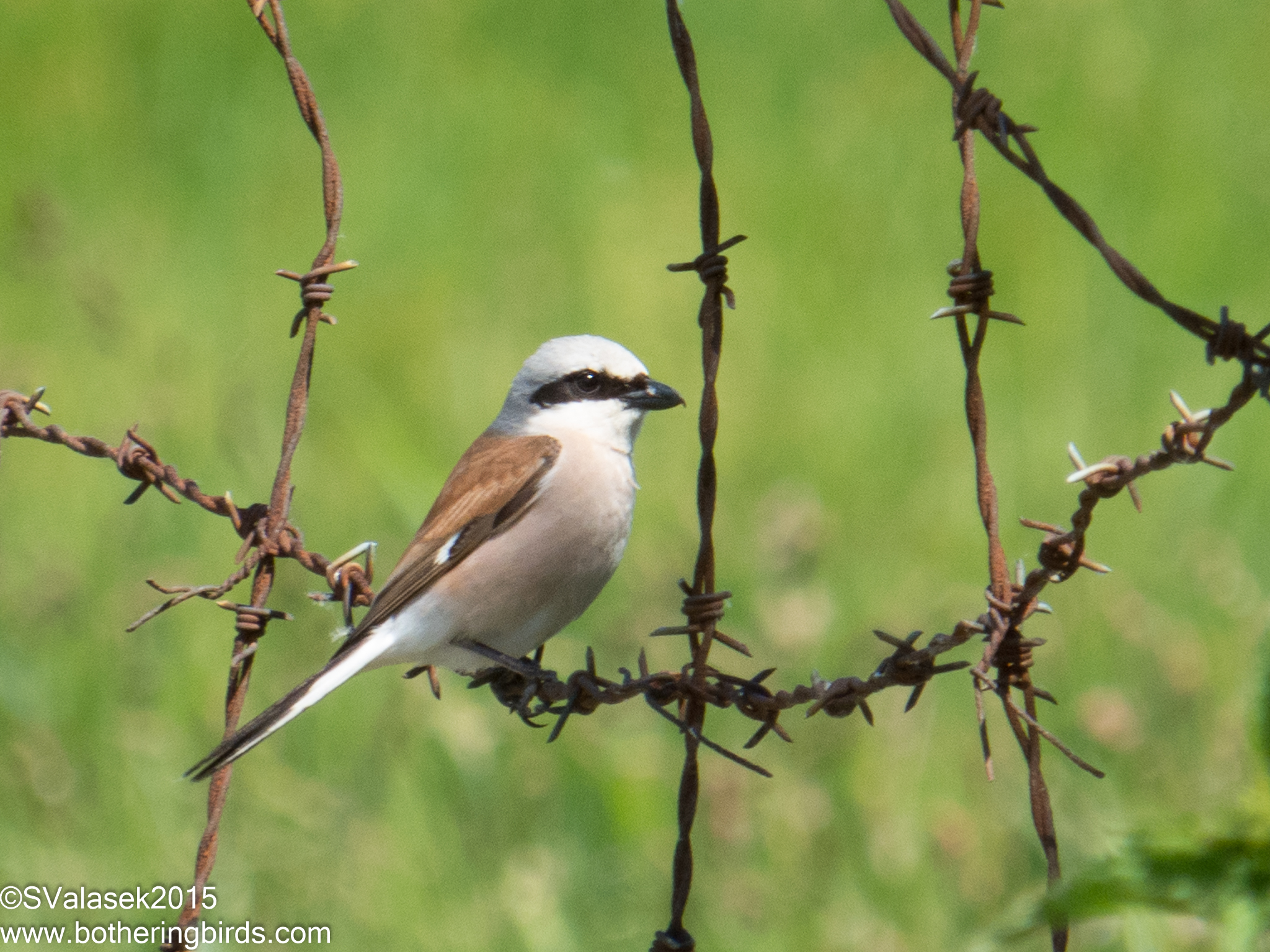 |
| Red-Backed Shrike - Andau Bridge, Austria |
This Female Golden Oriole would be the only one that actually landed within sight during out trip.
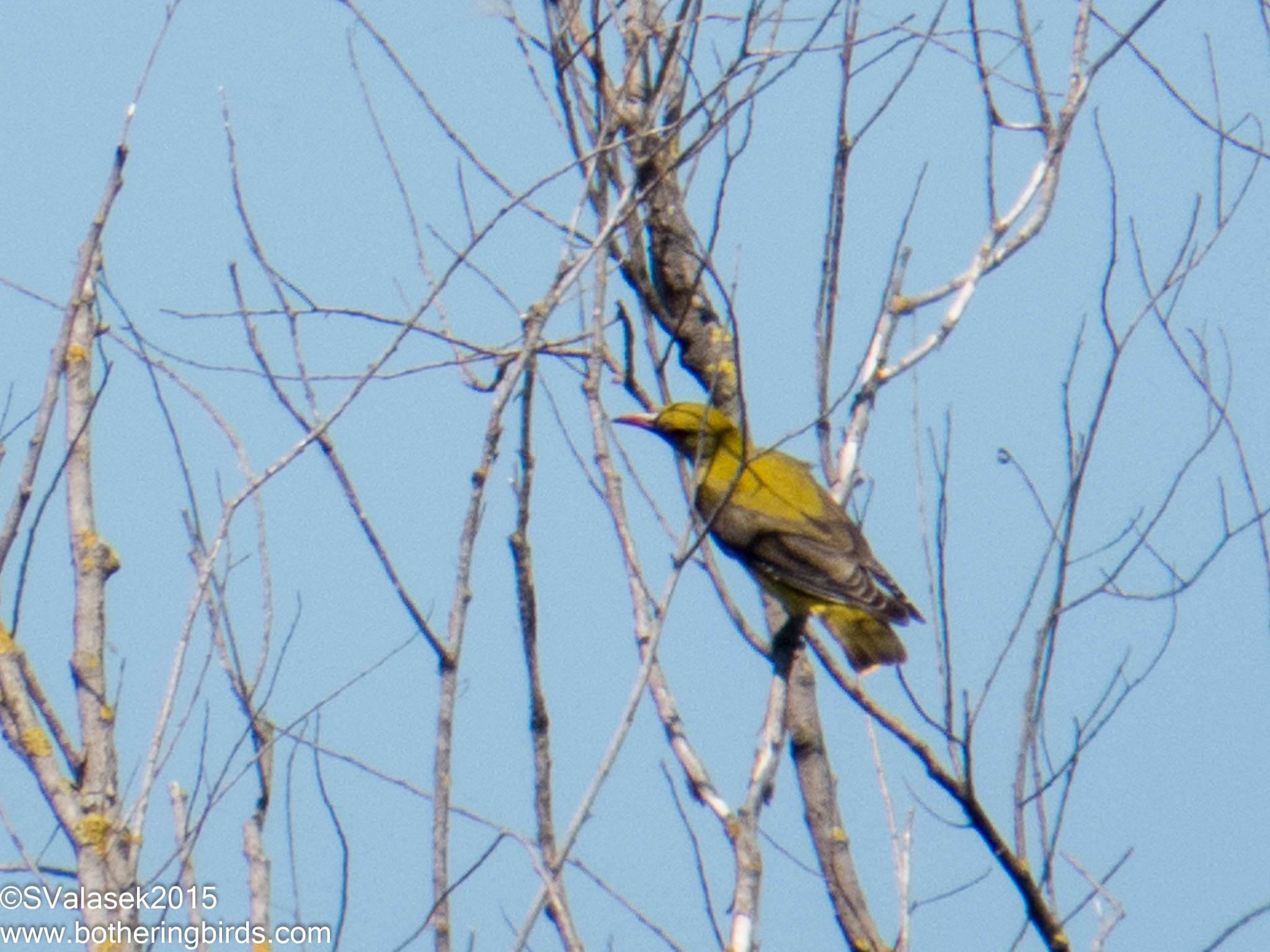 |
| Golden Oriole - Andau Bridge, Austria |
And the group's first look at a Honey Buzzard soaring overhead.
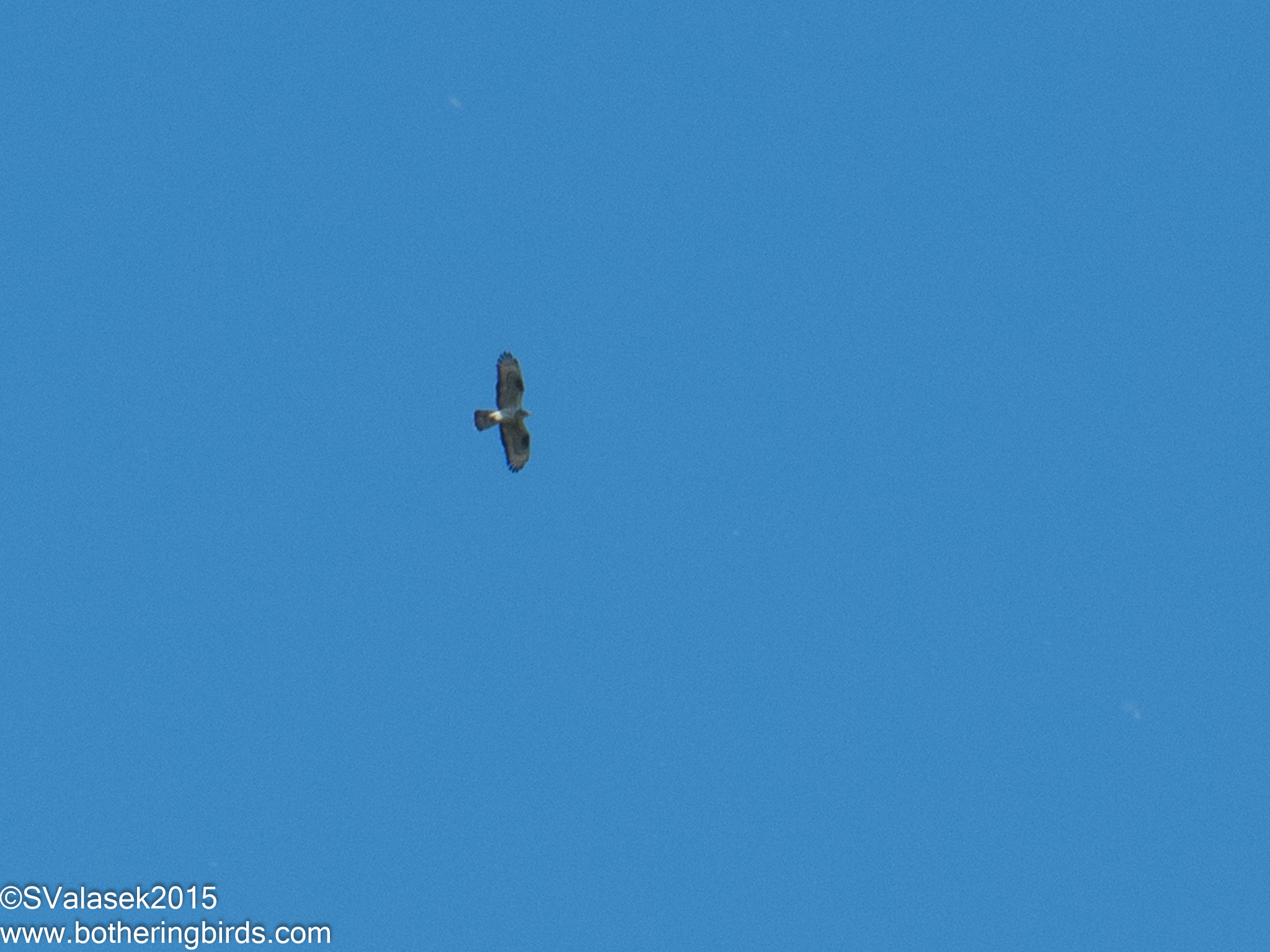 |
| Honey Buzzard - Andau Bridge, Austria |
At the bridge the group also saw some Yellow-Legged Gulls, Reed Warbler, Greater Reed Warbler, Penduline Tits, Turtle Dove and watched a Common Whitethroat visit it's nest.
After we were done at the bridge the group headed back towards Illmitz and lunch. But we had one more stop on the way back. The bus stopped near the location of an older Imperial Eagle's nest for a short visit to see if we could find any more Great Bustards. We were giving the option of walking down the road for a bit and having the bus pick us up. I ended up being the only one to take this offer and it would pay off. I was walking along the road when I saw a big bird flying over a field to my right. I saw a raptor's shape and a white-band on the base of the tail. I immediately thought that it was a Northern (Hen) Harrier. But the narrow wings belonged to a Montagu's Harrier! A lifer tick for me, and the only one to be seen by the group all week.
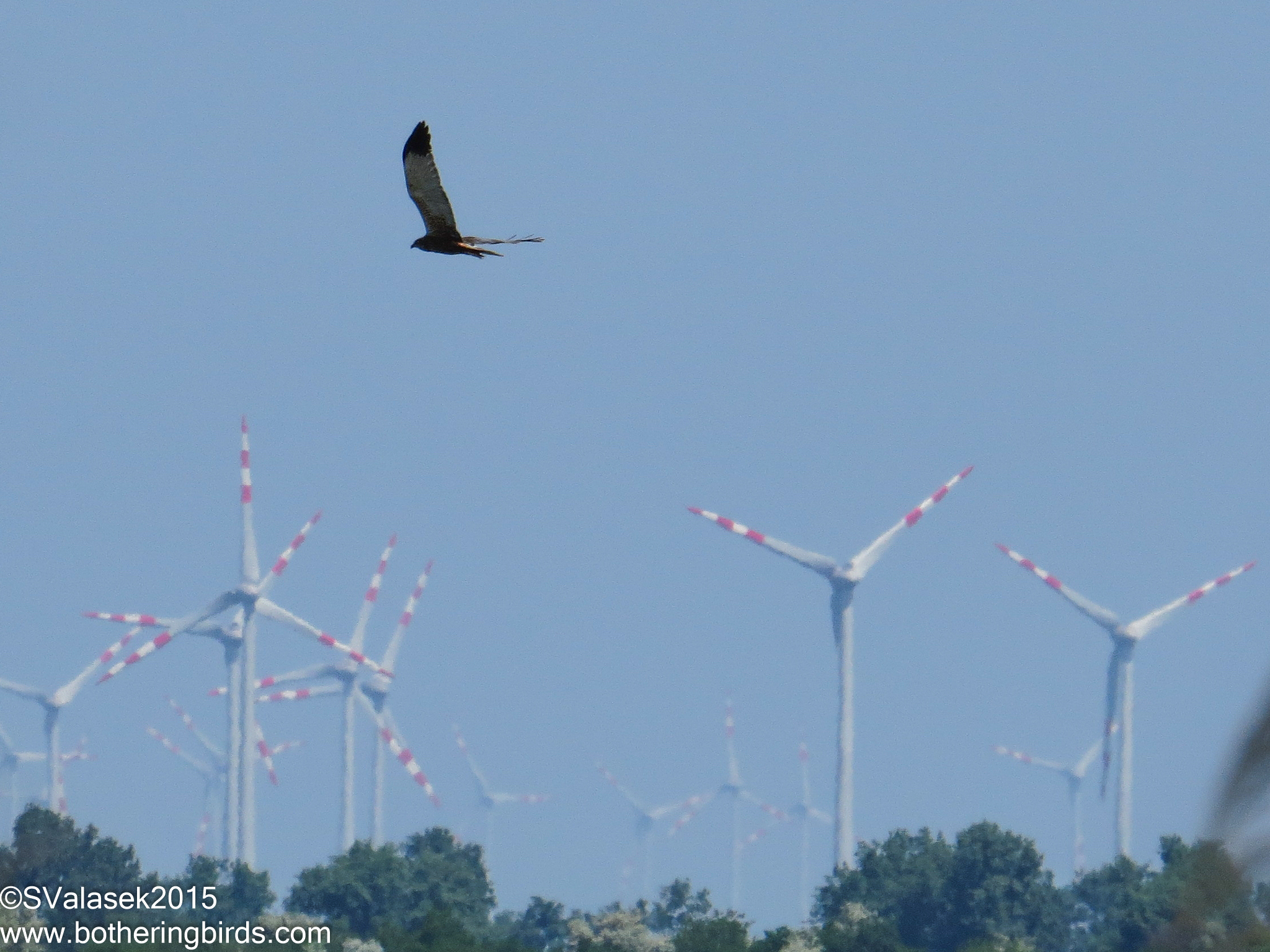 |
| Montagu's Harrier - Burgenland, Austria |
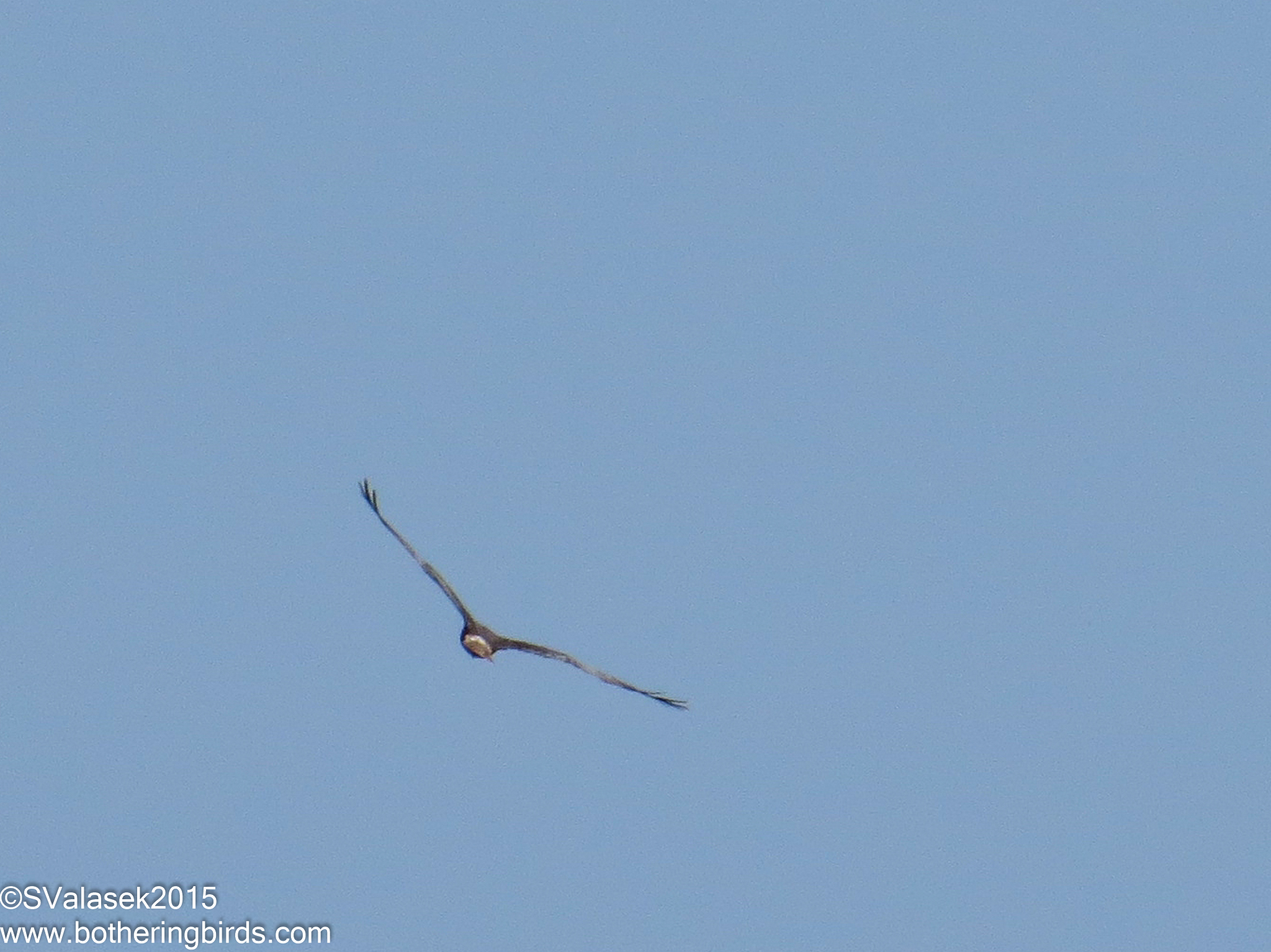 |
| Montagu's Harrier - Burgenland, Austria |
After lunch we set off to Hungary again to visit a large Bee-Eater colony. This time we would drive the bus over the border instead of walking. We wound through some villages and then forestland until we reached a little woodland cottage where the bus let everyone off.
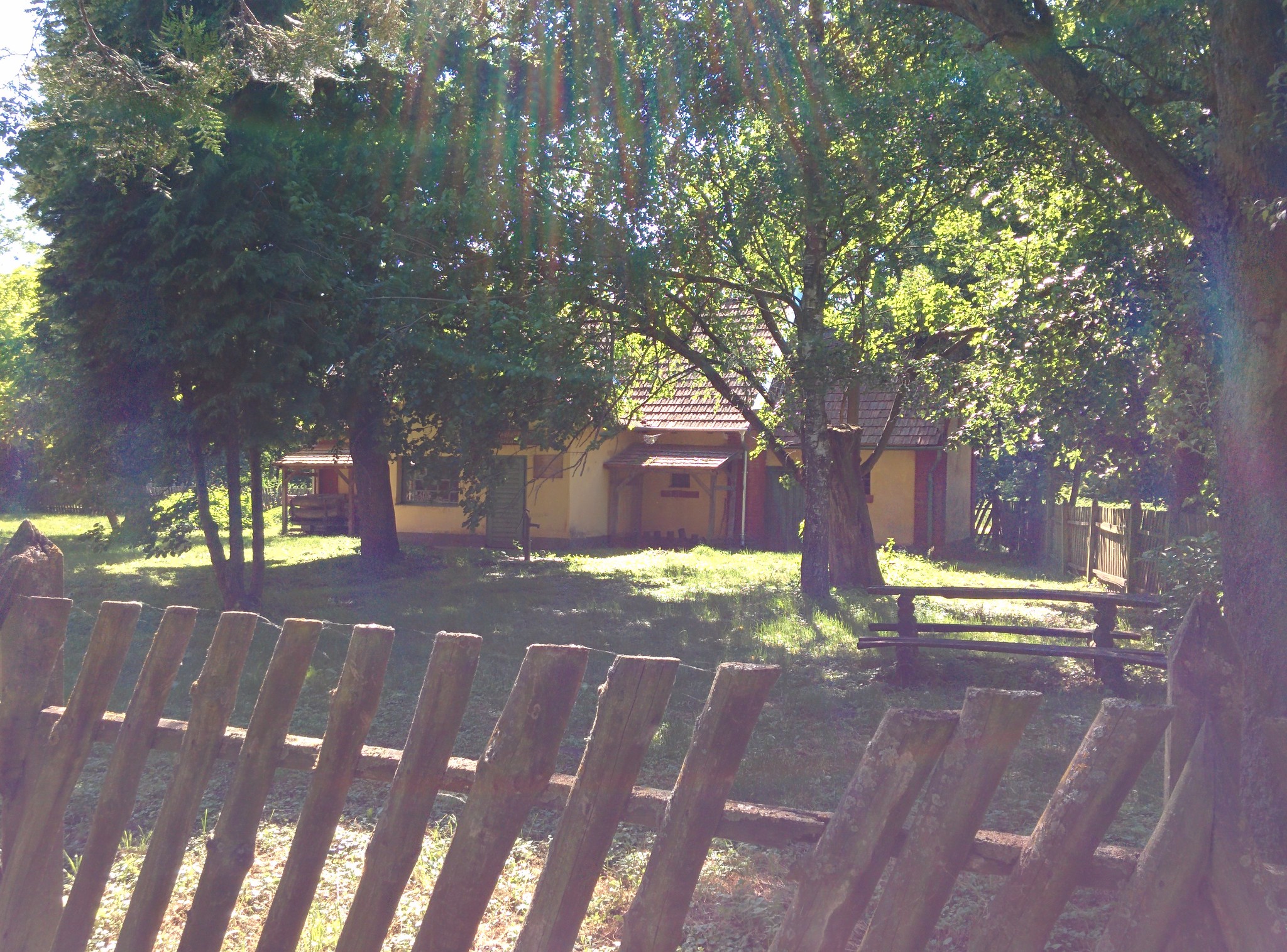 |
| Woodland Cottage - Csorna, Hungary |
Before entering the forest on our walk to the Bee-Eater Colony, we looked out over a large field for possible Eagles, but we just saw one of the many Common Buzzards seen during the week.
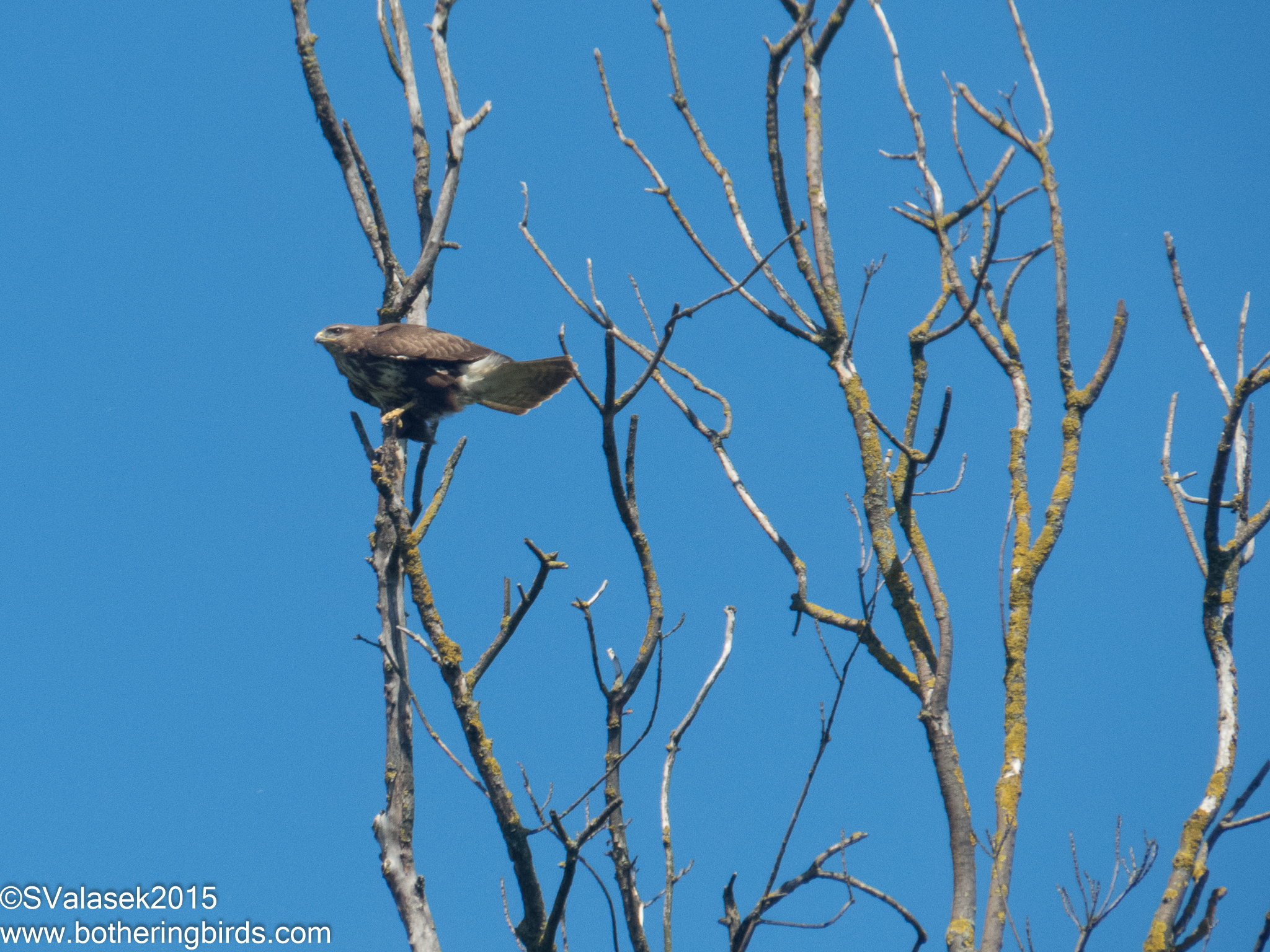 |
| Common Buzzard - Csorna, Hungary |
During the walk to the sand dunes most of the group stopped to look for a River Warbler heard calling and I happened to look up and spot a lifer Hobby flying overhead. Most of the group got to see it too before it quickly exited the area. We continued on a kilometer or so until we found ourselves at the edge of a clearing. Wetland and more reed-beds could be seen in the distance and the call of Bee-Eaters were everywhere, and so were they.
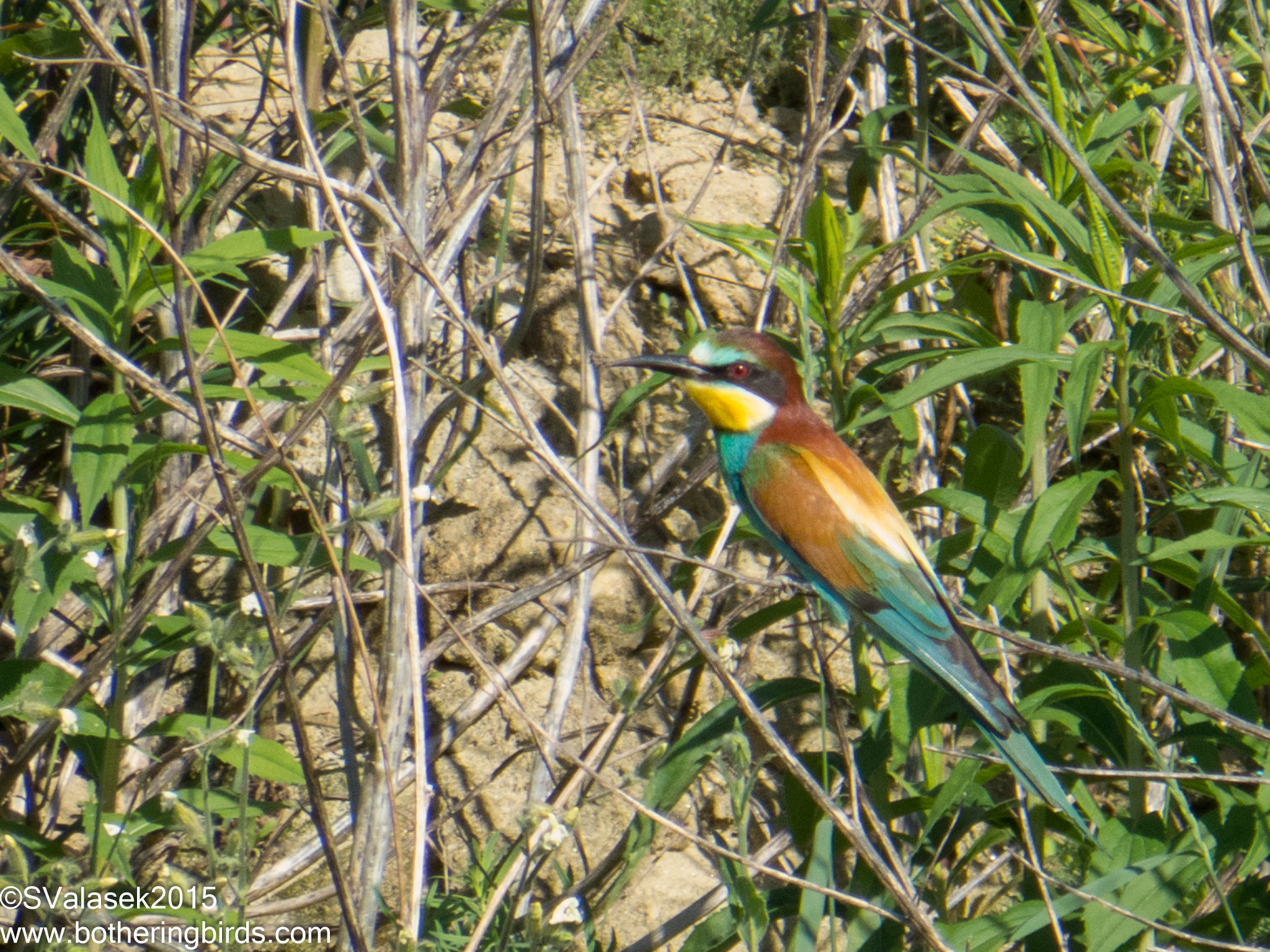 |
| European Bee-Eater - Csorna, Hungary |
A colony of 100-200 pairs were nesting in some exposed sand pits that were below ground level from where we were standing. Lucky for us another observation tower was nearby that gave us a look into where the nest holes were. Bee-Eaters dig burrows similar to a Kingfisher, but they aren't as shy.
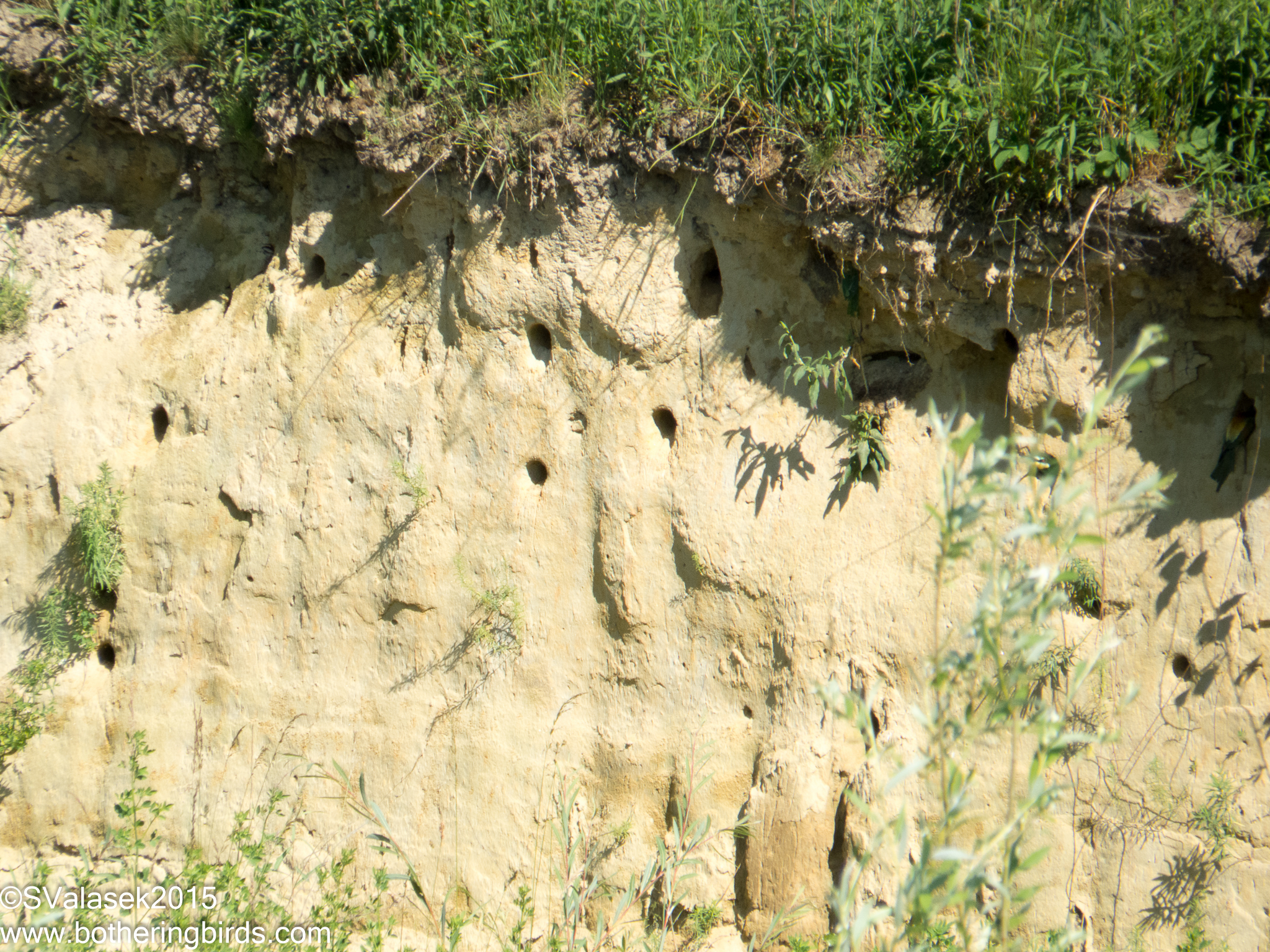 |
| Bee-Eater nest holes - Csorna, Hungary |
The Bee-Eaters were flying all around us and perched singularly, but mostly in pairs.
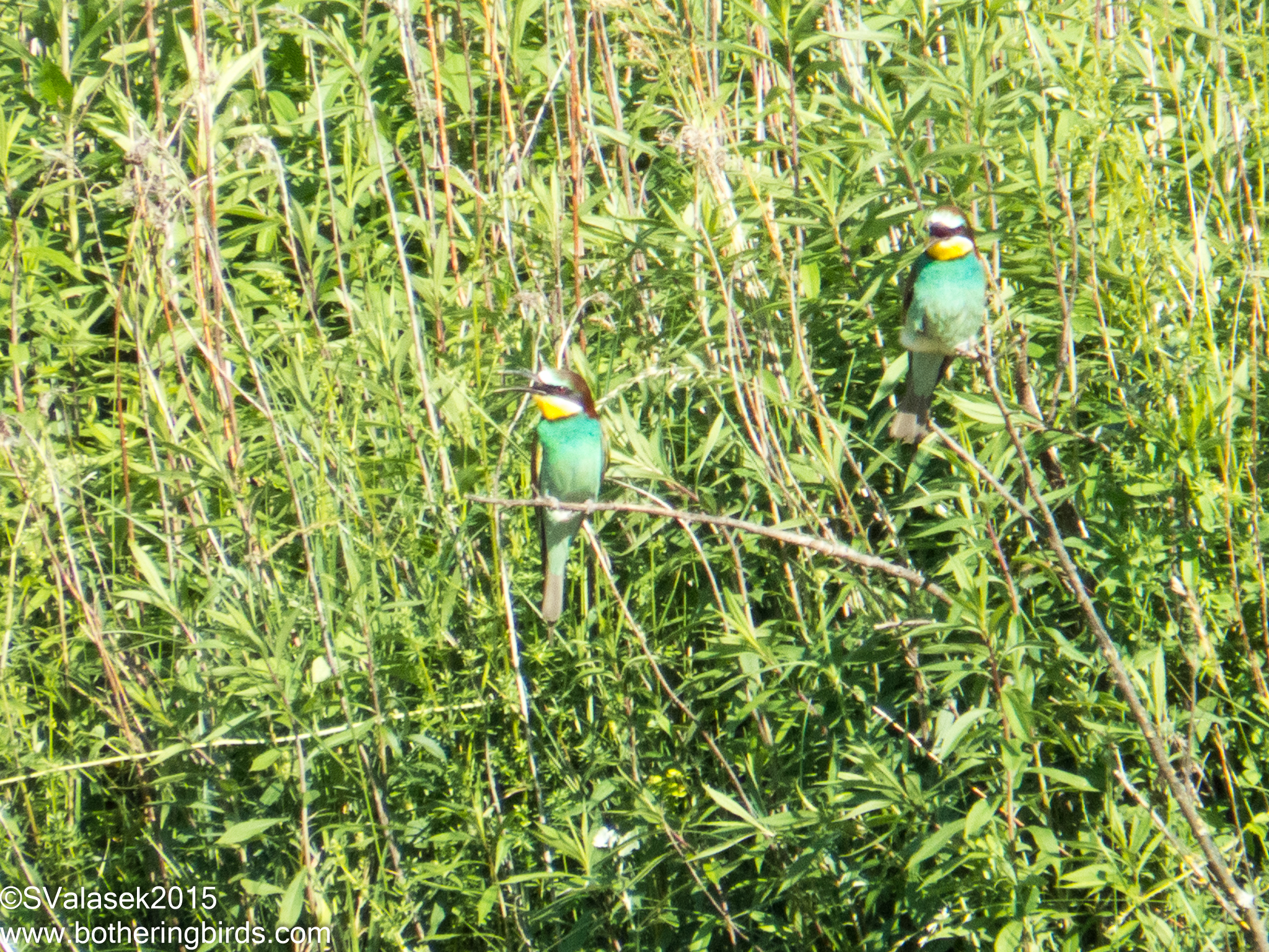 |
| European Bee-Eaters - Csorna, Hungary |
There were quite a collection of other birds about too. For as quick as I was to spot the Hobby on the walk in, I missed the only Squacco Heron seen during the week as it flew off from some reeds. But we saw Purple Herons, Night Herons, Great and Little Egrets, Whiskered Terns and even some Pygmy Cormorants were present.
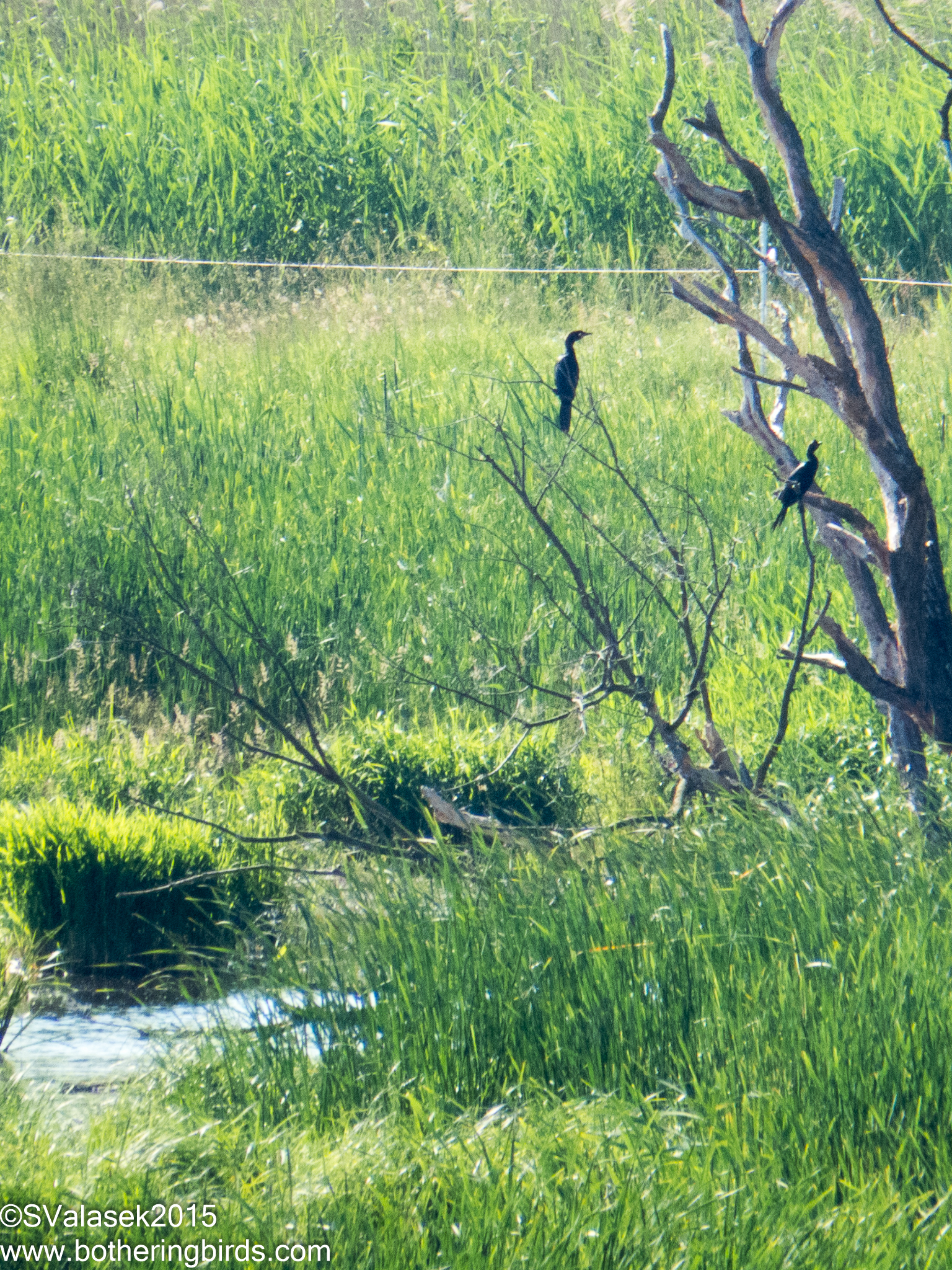 |
| Pygmy Cormorants - Csorna, Hungary |
Nothing new was spotted on the way back to the bus, or back to the hotel. It was the end of another long, hot day. Which would describe every day on the trip. Rewarding would also work.
Day 4 will take us to salt lakes and Ziesels, but that is for the next post.
Cheers!


















Enjoyed that read
ReplyDelete